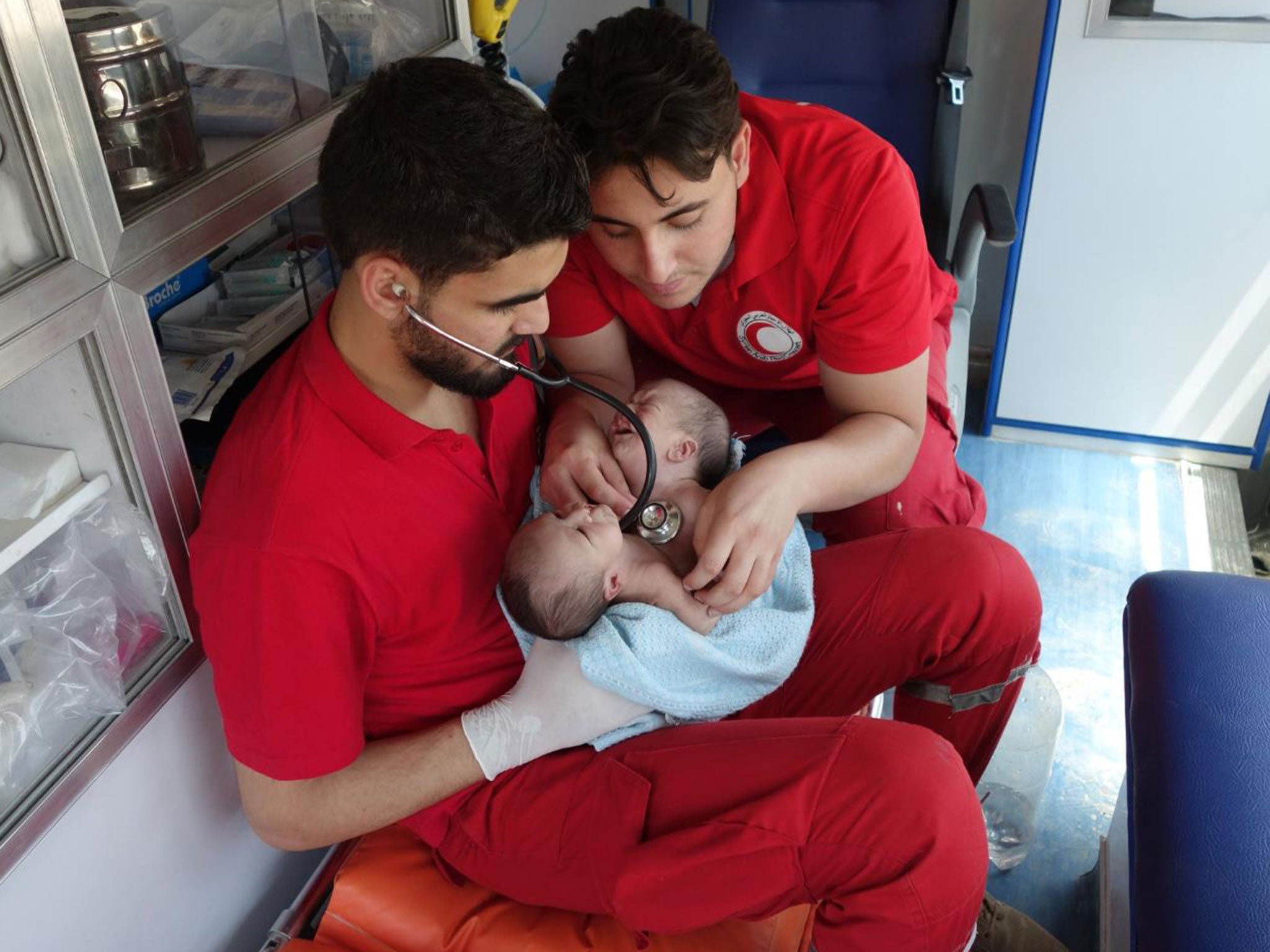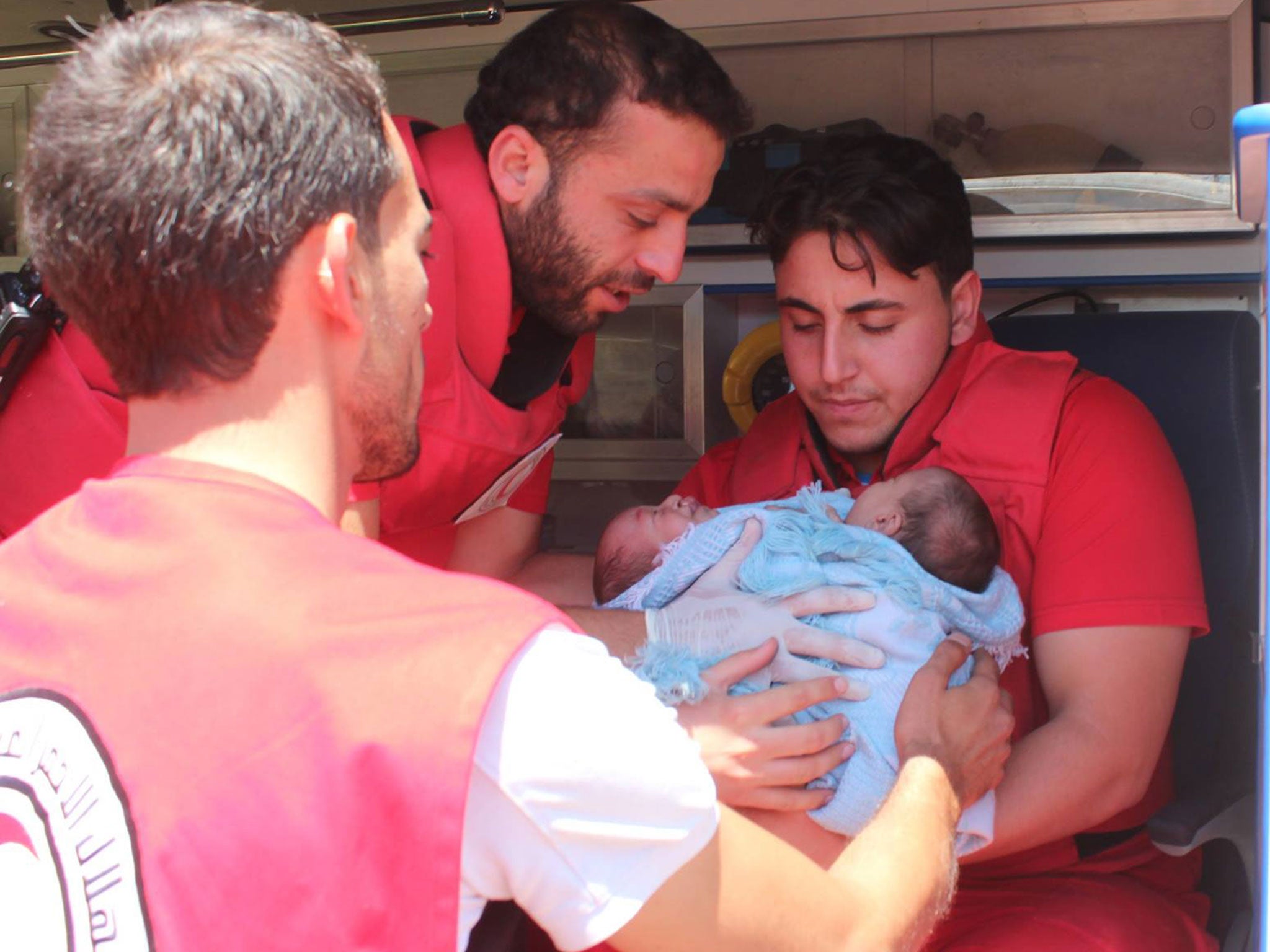Syria war: Conjoined twins born in besieged rebel town die awaiting surgery abroad
One-month-old brothers Moaz and Nawaz al-Hashash died of heart failure at a private hospital in Damascus

Your support helps us to tell the story
From reproductive rights to climate change to Big Tech, The Independent is on the ground when the story is developing. Whether it's investigating the financials of Elon Musk's pro-Trump PAC or producing our latest documentary, 'The A Word', which shines a light on the American women fighting for reproductive rights, we know how important it is to parse out the facts from the messaging.
At such a critical moment in US history, we need reporters on the ground. Your donation allows us to keep sending journalists to speak to both sides of the story.
The Independent is trusted by Americans across the entire political spectrum. And unlike many other quality news outlets, we choose not to lock Americans out of our reporting and analysis with paywalls. We believe quality journalism should be available to everyone, paid for by those who can afford it.
Your support makes all the difference.Conjoined twins born in a rebel-controlled suburb of the Syrian capital Damascus have died while waiting to leave the country for vital surgery abroad.
The one-month-old brothers, Moaz and Nawaz al-Hashash, died of heart failure on Wednesday at a private hospital in Damascus, the Syrian Arab Red Crescent (SARC) said.
The twins were born on 23 July in eastern Ghouta, an area that has seen vicious fighting, air strikes and chemical attacks.
The boys, who were joined at the chest with protruding intestines and diagnosed with heart failure and liver distortions, were safely evacuated on 12 August to Damascus Children’s Hospital in the capital, which is predominantly under the control of President Bashar al-Assad’s forces.
In cooperation with the Italian Association Terre des Hommes, the twins had been accepted for surgery at Bambino Gesu Hospital in Rome, Italy.

“All formal approvals were signed in order to travel and get the necessary surgical operation,” SARC said. “However, the babies died from heart failure before departure.”
Mona Kurdy, a spokeswoman for the Red Crescent, told The Wall Street Journal that “approval for the twins to leave Syria was granted Monday, but by then their condition had already started to worsen.”
The Syrian American Medical Society (SAMS), a foundation supporting medical facilities in Syria’s besieged areas, questioned why the twins were kept “at a private hospital in Damascus for almost two weeks despite the urgency of their case.”
In a statement the SAMS said they had been “working actively along with other humanitarian groups, to secure the evacuation of the twins abroad for the needed surgery; however, lack of cooperation from the Syrian government and SARC hindered the evacuation process.”
Dr Mohamad Katoub, SARC’s Turkey advocacy manager, told The Wall Street Journal he believed the babies’ transfer abroad had been stalled by Syria’s Foreign Ministry who, he claimed, were “looking for a medical solution that matched its political interests" and "trying to secure medical treatment for the twins in a country with friendlier relations with Syria.”
He tweeted a portrait of the twins by Syrian artist Akram Abo Alfoz shortly after their deaths had been announced, saying: “The whole world couldn’t have the permission to evacuate them.”
The SARC said in a statement that the babies were being registered in the formal civil records and had passports issued for them while they were in intensive care in Damascus, but had been too ill to travel.
The SAMS said: “The long and difficult process behind medical evacuations in Syria has led to the deaths of too many innocent Syrians living under siege.
"Syrian children like Moaz and Nawras often bear the consequences of bureaucratic delays driven by political interests. Medical evacuations should never be politicized and the needs of the patients must be prioritized in these critical cases.”
Join our commenting forum
Join thought-provoking conversations, follow other Independent readers and see their replies
Comments